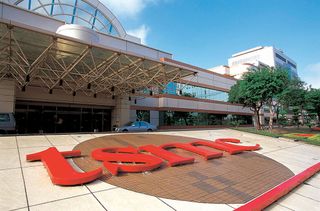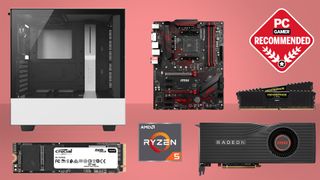TSMC founder Morris Chang believes US based chip production will be an 'exercise in futility'
US-based manufacturing is too expensive according to Chang.

We've posted several stories over the last few months talking about efforts by US-based companies to boost domestic semiconductor manufacturing capabilities. Intel in particular is spending billions of dollars to expand its US as well as European manufacturing capacity. It's one of several US-based companies that are pushing for the approval of the CHIPS for America act. Intel CEO Pat Gelsinger believes the bill is critical to protect the future of the US semiconductor industry.
Recent comments from Morris Chang, the founder and former CEO of TSMC, put a spotlight on many of the issues that the US faces in rebuilding its domestic chip manufacturing industry.
Chang was a guest of the Brookings Institution think tank (via The Register). Speaking on Tuesday, Chang said that the US simply doesn't have the fabrication talent pool needed to expand and succeed. He said the US has the best design talent, but its education system can't deliver the thousands of skilled manufacturing workers that are needed.
There's also the issue of labour costs. Labour is cheaper in Asia, and this was highlighted by Chang when he talked about setting up TSMC's Oregon-based facility. He said: "We really expected the costs to be comparable to Taiwan. And that was extremely naive... We still have about a thousand workers in that factory, and that factory, they cost us about 50 percent more than Taiwan costs." Chang went on to say, "Right now you're talking about spending only tens of billions of dollars of money of subsidy. Well, it's not going to be enough. I think it will be a very expensive exercise in futility".

Best CPU for gaming: The top chips from Intel and AMD
Best gaming motherboard: The right boards
Best graphics card: Your perfect pixel-pusher awaits
Best SSD for gaming: Get into the game ahead of the rest
It's well known that US companies want to reduce their reliance on Asian-based chipmakers for various reasons, including the protection and simplification of fragile supply chains, as well as acting as a hedge against global geopolitical instability.
Anyway, assuming that US efforts to increase domestic chip production capacity are successful, it will take many years to come to full fruition. Building state of the art manufacturing facilities takes years to go from a handshake to breaking ground to products appearing on shelves.
Geopolitical issues are always bubbling away and a supply side shock if TSMC were to suddenly cease production would be catastrophic for the global economy. Chang touched upon the possibility of war between China and Taiwan, saying, "Frankly, if there is a war in Taiwan Strait, then I think the United States will have more than chips to worry about."
The biggest gaming news, reviews and hardware deals
Keep up to date with the most important stories and the best deals, as picked by the PC Gamer team.
That's true for all of us.

Chris' gaming experiences go back to the mid-nineties when he conned his parents into buying an 'educational PC' that was conveniently overpowered to play Doom and Tie Fighter. He developed a love of extreme overclocking that destroyed his savings despite the cheaper hardware on offer via his job at a PC store. To afford more LN2 he began moonlighting as a reviewer for VR-Zone before jumping the fence to work for MSI Australia. Since then, he's gone back to journalism, enthusiastically reviewing the latest and greatest components for PC & Tech Authority, PC Powerplay and currently Australian Personal Computer magazine and PC Gamer. Chris still puts far too many hours into Borderlands 3, always striving to become a more efficient killer.
Most Popular





